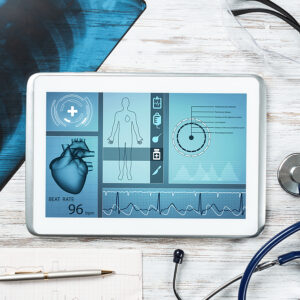Can a computer app bring medical patients some of the loving care that used to come from family, friends, and neighbors? Husband-and-wife entrepreneurs Renee Dua and Nick Desai are betting on it. They’ve just received $3.8 million in funding to develop and market an app called HeyRenee.
Medical professionals can do far more in 2021 than they could 50 years ago. Yet Americans are disgruntled with contemporary care and nostalgic for some lost humanized era. Part of the blame lies not with health care itself, but rather with patients’ social circumstances. Back in the day, doctors’ care was reinforced by assistance from family, friends, neighbors, and clergy.
In her 1961 book, “The Death and Life of Great American Cities,” urban visionary Jane Jacobs noted that North End Boston, then considered “the worst slum in the city,” had “among the lowest delinquency, disease, and infant mortality rates in the city”—including very low rates of a then-lethal menace, tuberculosis. Tightly knit communities, it seemed, possessed certain healing powers that doctors alone couldn’t provide.
In a chat with me, Dua noted people have fewer children nowadays. As described by Robert D. Putnam in “Bowling Alone,” Americans have grown isolated—with few family members, friends, and other support structures around us. That change profoundly compromises the quality of health care.
No app can bring back that remembered Arcadia. But technology can offer substitutes. Health care futurist Eric Topol titled his 2019 book “Deep Medicine: How Artificial Intelligence Can Make Medicine Human Again.” That idea—that machines can humanize care—brings us to Dua and Desai.
The couple first drew national attention in 2014 when they founded Heal, a California-based company enabling patients to summon doctors to their homes or workplaces (described in my previous “Return of House Calls — Renee Dua, Heal and the Uberization of Medicine” column).
HeyRenee aims to construct a digital substitute for our missing social networks. In the past, a grandchild might ask a Medicare patient how she feels and remind her to take her medications. A neighbor might drive her to a doctor’s appointment or call a hospital when she falls ill. A priest might talk her through a down period. But nowadays, there may be no grandchild, neighbor, or priest to help.
Dua explained to me how HeyRenee is supposed to work. A Medicare patient wakes up in the morning and HeyRenee’s Alexa-type voice asks, “How are you feeling?” The patient says, “Fine.” Then, HeyRenee says, “Don’t forget to go take your blood pressure pill.” Later on, HeyRenee asks, “Are you still feeling fine?” The patient says, “No, I have a bad headache.” HeyRenee responds, “Let’s check your blood pressure,” and on goes the cuff. If the pressure is high, HeyRenee might contact a doctor, arrange an appointment, and secure a ride for the patient. Importantly, using machine learning, the app gets to know the patient’s needs and habits over time.
According to a video on HeyRenee’s website, the app will offer one-touch access to all the patient’s providers, mental health services, drug delivery and adherence, real-time vitals and alerts, and telehealth and triage. Communication can be by voice or touchscreen.
(HeyRenee isn’t alone in this space, by the way. For example, backed by Apple, Johns Hopkins University is developing a similar app—“Corrie”— to assist recovering heart patients.)
HeyRenee is targeted especially at elderly, underserved, chronically ill patients. The plan is that patients will not pay a cent for the system—that insurers will provide the app, perhaps buy a tablet on which to load it, and help the patient get started with it. In turn, the insurer’s bottom line will benefit from early intervention and better treatment compliance.
Dua says a problem with existing health apps is that they’re designed for prosperous, computer-savvy high-earners. HeyRenee’s goal, she says, is to reach the people who don’t fit that description and counter what I once described as health policy’s “unintended elitism.”
Explaining her motives, Dua says: “All humans have a right to timely, preventive healthcare that helps them live their best lives. All of us at HeyRenee feel privileged to spend our time and energy making healthcare easier and more effective for those who need it most.”

